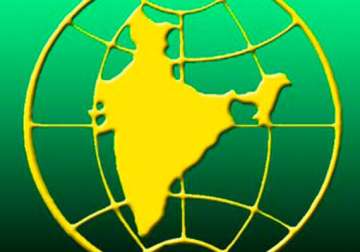New Delhi, Nov 20: Indian industry appears to be wary of the “toughest liability regime” for the nuclear sector and hopes that national and international equipment suppliers agree to it.
“India will have the toughest liability regime. It is hoped that national and international suppliers agree as rules have to imbibe the spirit of the Act,” D S Rawat, Secretary General, Assocham told PTI.
Recently, government notified the implementation rules for the Civil Liability for Nuclear Damage Act which gives operators the right to seek compensation from suppliers for a limited period of five years and not for the entire lifetime of a reactor.
Rawat said normally a period of five years is adequate to unearth defects in nuclear equipment if any.
“There have been several cases where design modifications have been carried out during this period,” he added.
The present rules on right to recourse are “optimum” and the “best option available”, Rawat said.
Making the rules stricter could severely affect the nuclear programme, while diluting them further will not imbibe the spirit of the law, he said.
Assocham, which has several national nuclear equipment suppliers as members, argued that a five-year limit on licence period could prove advantageous to obtain free design changes, which would prove difficult in case of a longer coverage.
It also pointed out that the Atomic Energy Regulatory Board mandates design coverage throughout the life of the nuclear power plant which has to be preferably through the vendor unless an alternate is arranged by the license holder.
“This provision bestows a moral right on the operator to pin the supplier down for design faults throughout the life of the station,” Assocham said.
French company Areva, which plans to set up two 1650 MW nuclear power plants in Jaitapur in Maharashtra, refrained from making any immediate comment on the liability rules.
“We welcome their publication...But we are still to fully read and understand it. We do not wish to comment on the Rules for the time being and will comment in due time,” Arthur de Montalembert Chairman-cum-Managing Director Areva India told PTI.
Assocham's Rawat said the coming into force of the Civil Liability for Nuclear Damage Act becomes important as there had been no framework existing now for compensation.
The Act would enable fast dispensation of the compensation—within five months, as decided by adjudication authority with no cap, without discrimination by simple procedure as there is a single window.
The product liability time cap on the right to recourse is likely to vary from product to product and is also likely to influence the cost demanded by suppliers.
If the Nuclear Power Corporation of India Limited insists on a longer product liability on a component or equipment it could lead to an escalation in the cost.
The nuclear liability laws in China, Canada, France, Germany, Japan, Russia, the UK and the US channel liability exclusively to operators and do not provide a right of recourse on suppliers.
Although Korea has a law similar to India's, the right to recourse may be excluded through contract.
Latest Business News
